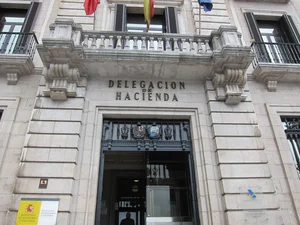Spanish Government's Debt Forgiveness Plan Sparks Controversy and Economic Debate

In a move that has sent ripples through Spain's political and economic landscape, the Spanish government, led by Prime Minister Pedro Sánchez, has unveiled a sweeping plan to forgive over €83 billion of debt accrued by the country's autonomous communities. This initiative, announced on February 26, 2025, aims to alleviate the financial burdens imposed on regional administrations, particularly those exacerbated during the financial crisis and the COVID-19 pandemic.
The Debt Forgiveness Plan
The plan involves the central government taking over a significant portion of the debt accumulated by the autonomous regions through the Regional Liquidity Fund (FLA), established in 2012 as an emergency measure. This fund allowed regions to obtain financing when they no longer had access to capital markets. The debt forgiveness is part of an agreement reached between the Socialist Party (PSOE) and the Republican Left of Catalonia (ERC) to secure ERC's support for Sánchez's government.
Distribution and Beneficiaries
The debt relief will be distributed in a phased manner, with 75% of the amount allocated based on demographic factors such as adjusted population, taking into account ageing and population density. The remaining 25% will be allocated to regions with the highest debts and those most disadvantaged by the current financing system.
Andalusia and Catalonia are set to be the largest beneficiaries, with Andalusia receiving approximately €18.8 billion (22.6% of the total) and Catalonia receiving around €17.1 billion (20.5% of the total). The Valencia Region will receive €11.2 billion (13% of the total), while the Madrid Region, despite owing no debt to the State, will not benefit directly from this measure.
Political Backlash
The proposal has ignited significant controversy among political factions. The opposition People's Party (PP) has vehemently opposed the plan, arguing that it will lead to increased taxes to cover the forgiven debt. The PP claims that the government's decision will ultimately burden Spanish taxpayers, a stance that has been denied by the Ministry of Finance.
María Jesús Montero, the Minister of Finance, has defended the plan, emphasizing its necessity to correct the over-indebtedness faced by regional administrations. However, even within the ruling coalition, there are dissenting voices. Compromís, a coalition partner of the PSOE, has expressed strong disapproval, arguing that the plan neglects the pressing fiscal needs of regions like Valencia.
Economic Implications
The debt forgiveness plan is seen as a double-edged sword. On one hand, it reduces the immediate financial burden on regional governments, allowing them to allocate more resources to essential public services such as health and education. On the other hand, it increases the State's total debt, which has been rising significantly.
Critics argue that this measure could lead to economic instability and higher taxes in the long run. The plan also risks generating division within the PP, with some leaders like Juanma Moreno in Andalusia and Carlos Mazón in Valencia potentially supporting the debt forgiveness, while others remain opposed.
Public Reaction
The public reaction to the plan is mixed. While some see it as a necessary step to alleviate regional financial woes, others are concerned about the broader economic implications. The announcement has set the stage for a heated debate at the upcoming Consejo de Política Fiscal y Financiera (CPFF) meeting, where regional leaders will confront the central government over the details and implications of the plan.
As the Spanish government navigates this complex financial and political landscape, expats in Spain will be watching closely to see how these developments impact the country's economic stability and their own financial situations. The coming weeks will be crucial in determining the fate of this ambitious debt forgiveness plan and its potential consequences for Spain's future.
Related Stories

Spain Resets VAT on Staple Foods as Economic Measures Evolve
Spain to reset VAT on staple foods to pre-crisis levels in 2025, extending public transport subsidies and maintaining economic support measures.

Spanish Stock Market Closes 2024 on a High Note Despite Global Uncertainty
Despite global uncertainties, the Spanish stock market's IBEX 35 index soared, marking a year of impressive growth and resilience in 2024.

Spanish Tax Authority Initiates Refund Process for 2023 Tax Returns
The Spanish Tax Authority has launched the refund process for 2023 tax returns, with key dates from April 3 to July 1, 2024, offering crucial information for expats.

New Initiative to Boost Local Economy in Comillas, Cantabria
Comillas launches "Comillas Vale" initiative with 800 vouchers to boost local economy and community engagement, starting January 15, 2025.

Torrelavega Emerges as a Key Hub for Commerce and Industry in Cantabria
Torrelavega cements its role as Cantabria's industrial and commercial hub, with strategic investments and natural resources driving economic growth.